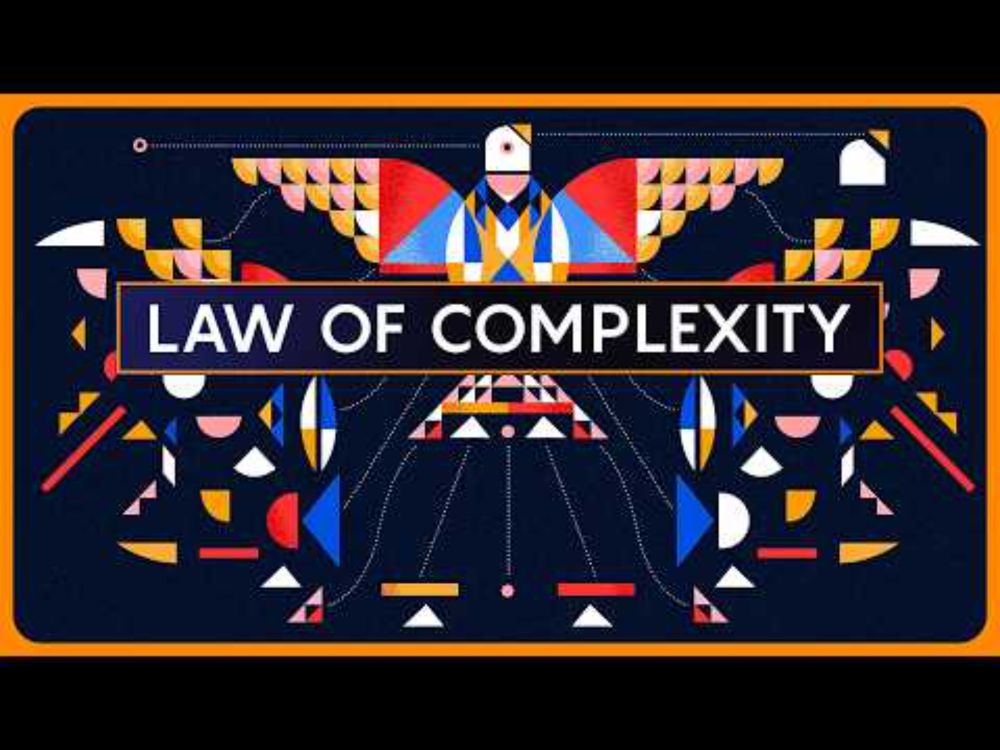
Bob Hazen and I yap about science, information, and complexity.
Thanks to @quantamagazine.bsky.social for the spotlight!
@matthewrlogie.bsky.social
Postdoc, looking for positions. I am a cognitive neuroscientist and VR developer interested in space, time and memory. Putting science into practice to improve learning. Currently working at Neurospin. https://brainthemind.com/

Bob Hazen and I yap about science, information, and complexity.
Thanks to @quantamagazine.bsky.social for the spotlight!
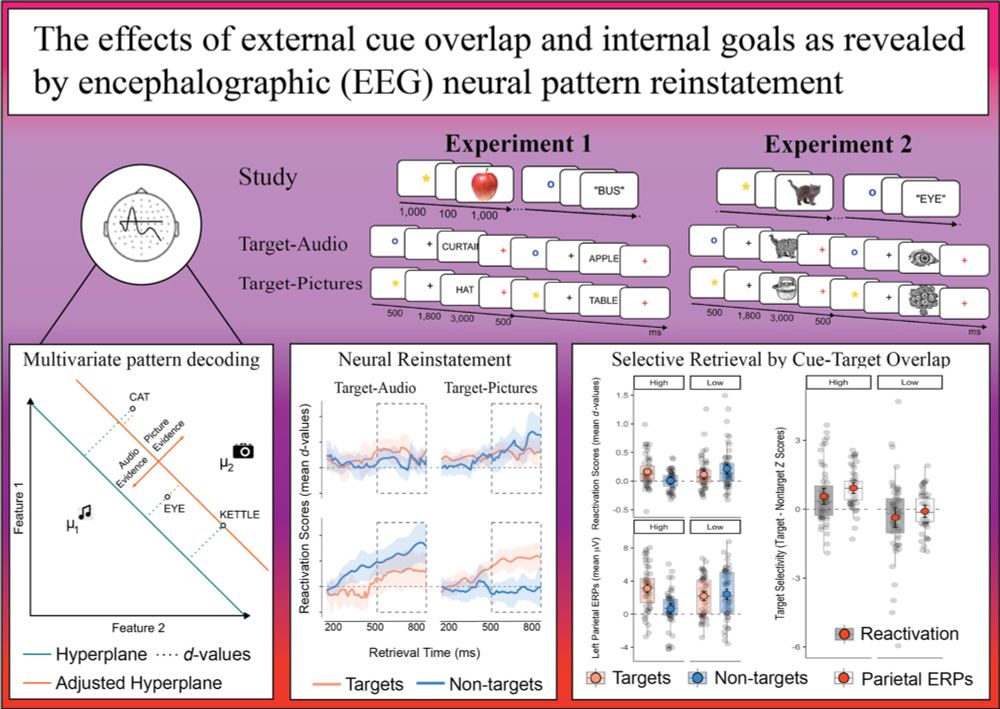
🚨Paper now published! 🚨
The Effects of External Cue Overlap and Internal Goals on Selective Memory Retrieval.
Grateful for thorough reviews that made it stronger. Out now in #EJN: doi.org/10.1111/ejn..... w @alexamorcom.bsky.social @MattPlummer @ivorsimpson.bsky.social. Updated summary🧵👇

Mixed-effects modellers, assemble!
Just dropped a (very niche) blog on the weird quirks that occur with uncorrelated random effects and the trifecta of packages: lme4, afex, and performance (in R).
Read here 👉 sites.google.com/view/jamieco...
#rstats #MixedModels #lme4 #afex #performanceR
Our new paper is out! When navigating through an environment, how do we combine our general sense of direction with known landmark states? To explore this, @denislan.bsky.social used a task that allowed subjects (or neural networks) to choose either their next action or next state at each step.
02.08.2025 08:37 — 👍 64 🔁 25 💬 0 📌 0
7 days. That’s all you’ve got left to shine a light on someone doing exceptional neuroscience work!
Nominate them now before the window closes!
📌 Nominations close 10 August
🎯 Final push. Tag, share, submit.
📥 docs.google.com/forms/d/e/1F...
🚨 New preprint alert!
Excited to share our latest work on alpha/beta activity, eye movements, and memory.
Across 4 experiments combining scalp EEG/iEEG with eye tracking, we show that alpha/beta activity directly reflects eye movements, and only indirectly relates to memory.
👇 Highlights (1/7):
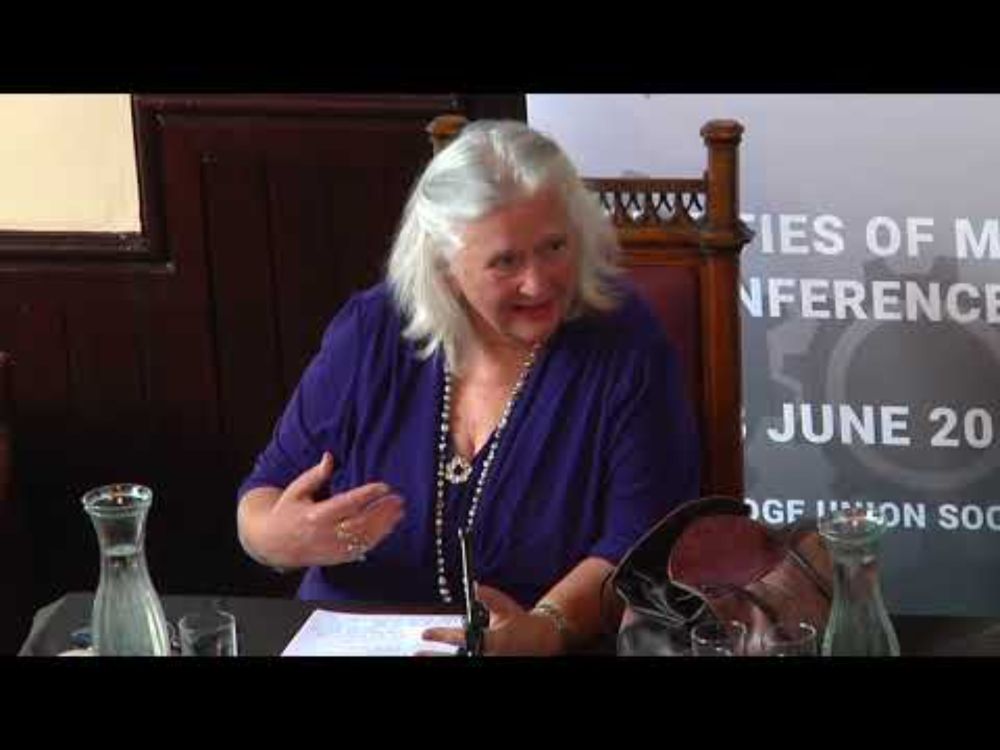
Inaugural Lecture of the Margaret Boden Lecture series at the Leverhulme Centre for the Future of Intelligence
www.youtube.com/watch?v=zNr2...

Albert Camus to René Char (1957)
Camus-Char: Correspondence 1946-1959
1/4
New paper in @pnas.org! How does stress affect our social decisions in conflict? More aggression (fight-or-flight)? Or more altruism (tend-and-befriend)? Our new study suggests: it’s not either/or, stress promotes both at once, depending on the neurochemical balance and the social context. 🧠
Our oscillations consensus paper is finally out as a preprint 🤩 thanks to everyone involved
arxiv.org/abs/2507.15639
🔓 Boeltzig, M., Liedtke, N., Siestrup, S., Mecklenbrauck, F., Wurm, M. F., Bramão, I., & Schubotz, R. I. (2025). The benefit of being wrong: How prediction error size guides the reshaping of episodic memories. NeuroImage, 317, 121375. doi.org/10.1016/j.ne...
21.07.2025 12:10 — 👍 1 🔁 1 💬 0 📌 0
In the latest #UndertheCortex, @brynnsherman.bsky.social from @upenn.edu shares that repeated experiences are more vividly remembered and are often perceived as having occurred further in the past than they did.
16.07.2025 19:31 — 👍 17 🔁 8 💬 0 📌 0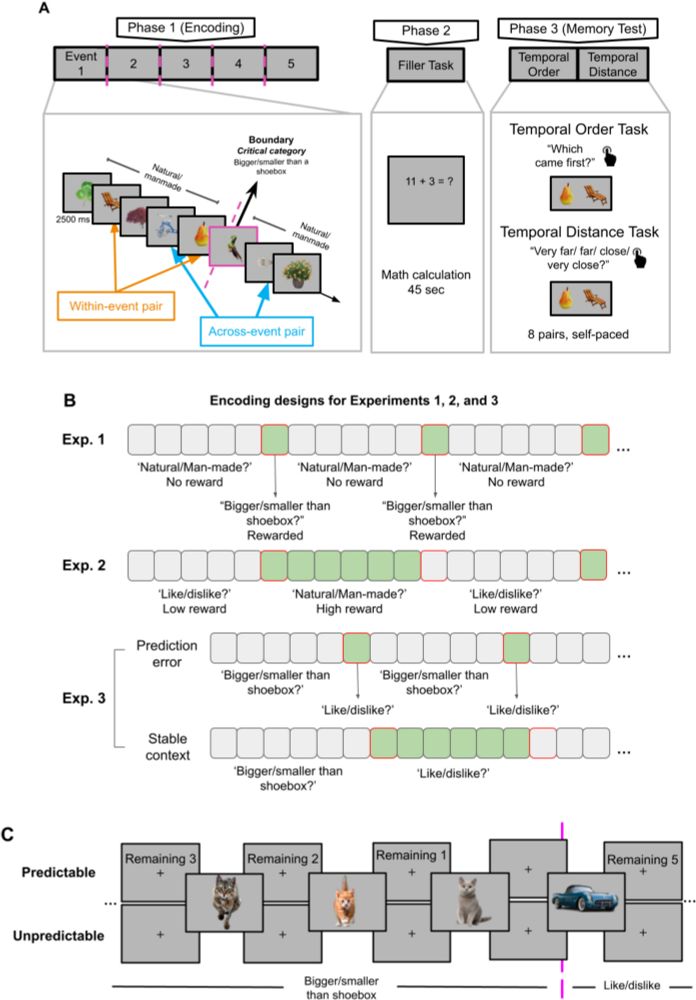
New paper alert🚀
Episodic memory is structured by event boundaries—moments of critical change. The common view suggests that prediction errors drive them—but is that true? We show that contextual stability, not prediction errors, is the key driver of segmentation.
link.springer.com/article/10.3...
Our new paper out now in Science explores how neural activity in the lateral entorhinal cortex (LEC) *drifts* over time - and *jumps* at key boundaries - to help organize events in memory.
🔗 www.science.org/doi/10.1126/...
Here's a quick summary of what we found 🧵👇
📢 now out @natrevpsychol.nature.com In a new perspective w/ @davidnagy.bsky.social & @gergoorban.bsky.social, we reconcile a glaring problem in applying rate-distortion theory as a framework for human memory, integrating empirical findings across a host of human memory research 🧵👇
06.06.2025 08:11 — 👍 52 🔁 15 💬 1 📌 0Thoroughly enjoyed your talk and subsequent discussions @aidanhorner.bsky.social
23.06.2025 20:12 — 👍 1 🔁 0 💬 0 📌 0Plenty of discussions to be had about complex events!
22.06.2025 14:02 — 👍 1 🔁 0 💬 0 📌 0Looking forward to your talk.
22.06.2025 13:45 — 👍 1 🔁 0 💬 1 📌 0On the train to Paris to give a talk tomorrow at Neurospin. Looking forward to meeting everyone there. Thanks for the invite @herbstso.bsky.social & @matthewrlogie.bsky.social!
22.06.2025 11:39 — 👍 15 🔁 2 💬 2 📌 0Proud to share the first preprint of my PhD w/ @barense.bsky.social & Mursal Jahed:
“Putting the testing effect to the test in the wild: Retrieval enhances real-world memories and promotes their semantic integration while preserving episodic integrity”
See thread! 🧵 osf.io/preprints/ps...
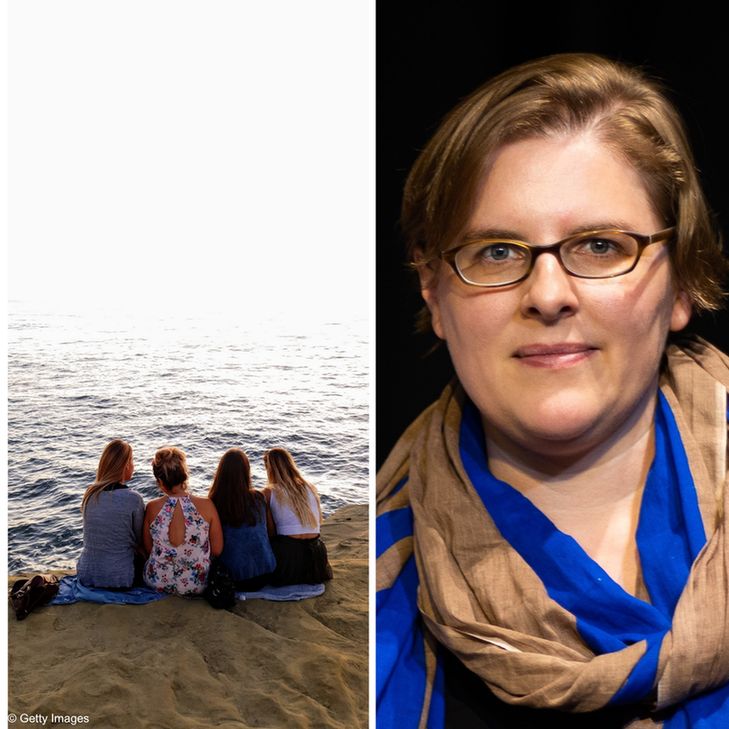
How do we make friends? 🤝
ERC Advanced grant recipient @antoniahamilton.bsky.social and her team at @ucl.ac.uk will study how synchrony & shared tasks can help us bond and improve our well-being.
Find out more👉 buff.ly/R6abUn2
#ERCAdG #FrontierResearch #SyncShareBondModel #Neuroscience
New paper: "Large Language Models and Emergence: A Complex Systems Perspective" (D. Krakauer, J. Krakauer, M. Mitchell).
We look at claims of "emergent capabilities" & "emergent intelligence" in LLMs from the perspective of what emergence means in complexity science.
arxiv.org/pdf/2506.11135

A Temporal Hierarchy of Sustained Attention Dynamics
journals.sagepub.com/share/YUQSMC...
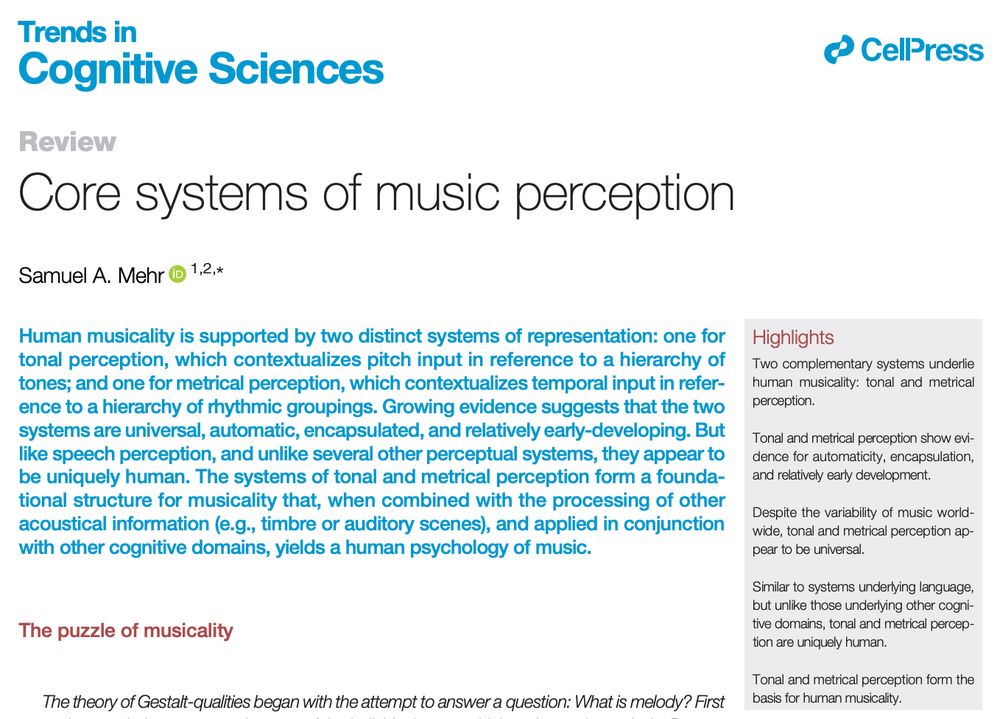
Trends in Cognitive Sciences Review Core systems of music perception Samuel A. Mehr 1 ,2 , * 1 School of Psychology, University of Auckland, Auckland, New Zealand Human musicality is supported by two distinct systems of representation: one for tonal perception, which contextualizes pitch input in reference to a hierarchy of tones; and one for metrical perception, which contextualizes temporal input in reference to a hierarchy of rhythmic groupings. Growing evidence suggests that the two systems are universal, automatic, encapsulated, and relatively early-developing. But like speech perception, and unlike several other perceptual systems, they appear to be uniquely human. The systems of tonal and metrical perception form a foundational structure for musicality that, when combined with the processing of other acoustical information (e.g., timbre or auditory scenes), and applied in conjunction with other cognitive domains, yields a human psychology of music.
my latest, in Trends in Cognitive Sciences
this review lays out what I think the fundamental specializations are for music perception in humans, namely, the hierarchical processing of pitch and rhythm
or, how our minds turn vibrating air into music
authors.elsevier.com/a/1lG9G_V1r-...
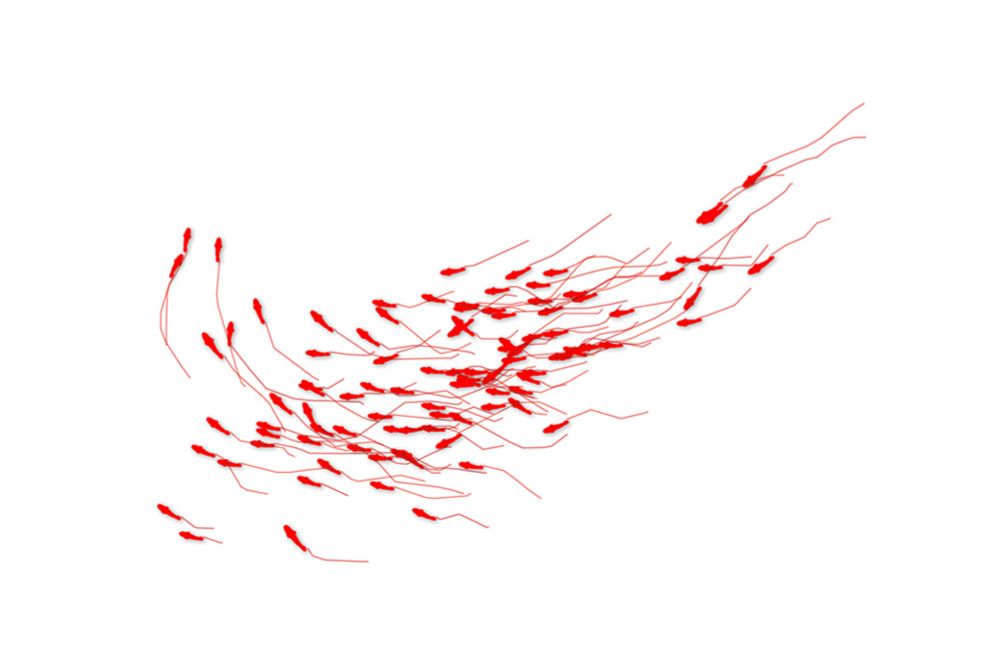
Once upon a time I couldn't replicate a published finding...and decided to do something about it.
Little did I know how long it would take to finish 😭...but here we are. I'm super proud of this paper and grateful to the other 68 (!) authors. ❤️
royalsocietypublishing.org/doi/10.1098/...
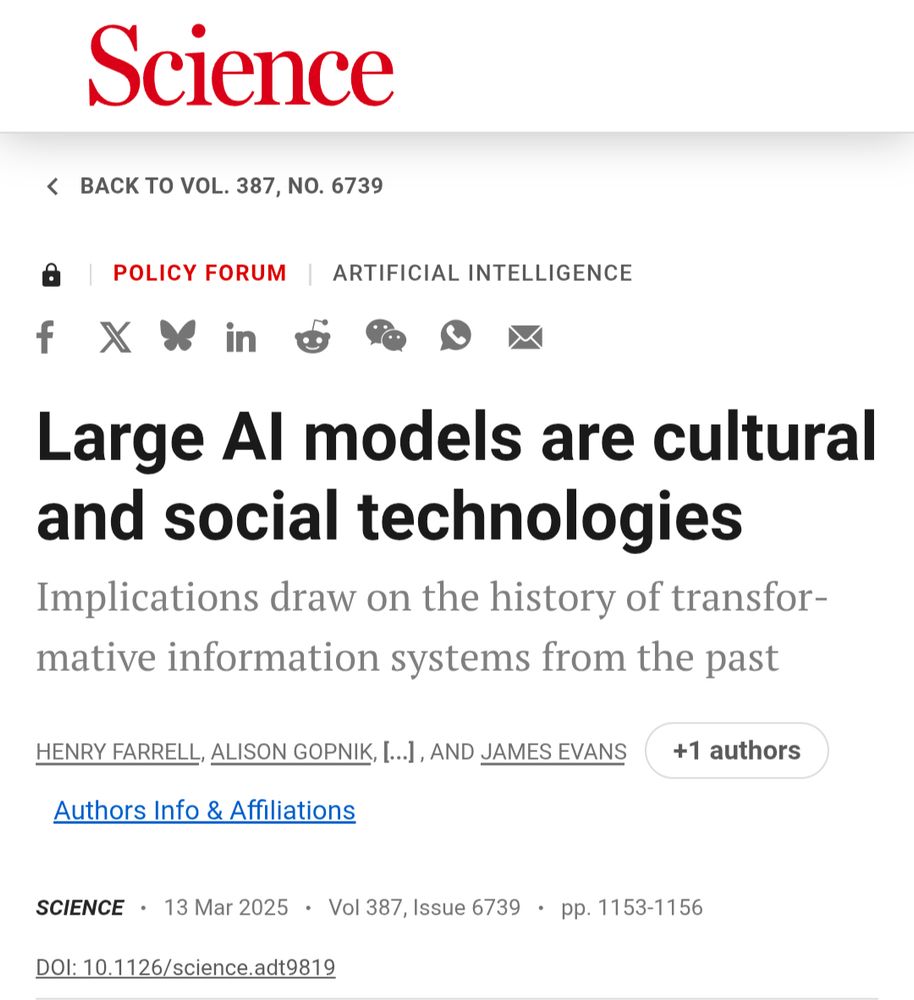
"Large [language] models should not be viewed primarily as intelligent agents but as a new kind of cultural and social technology, allowing humans to take advantage of information other humans have accumulated." henryfarrell.net/wp-content/u...
07.06.2025 16:59 — 👍 80 🔁 18 💬 2 📌 5
Episodic remembering comes with a complex phenomenology. How can we account for it? Which methodology is best suited to study it? Today, Francesca Righetti (Ruhr University Bochum) shares some very interesting ideas about these questions.
open.substack.com/pub/thememor...
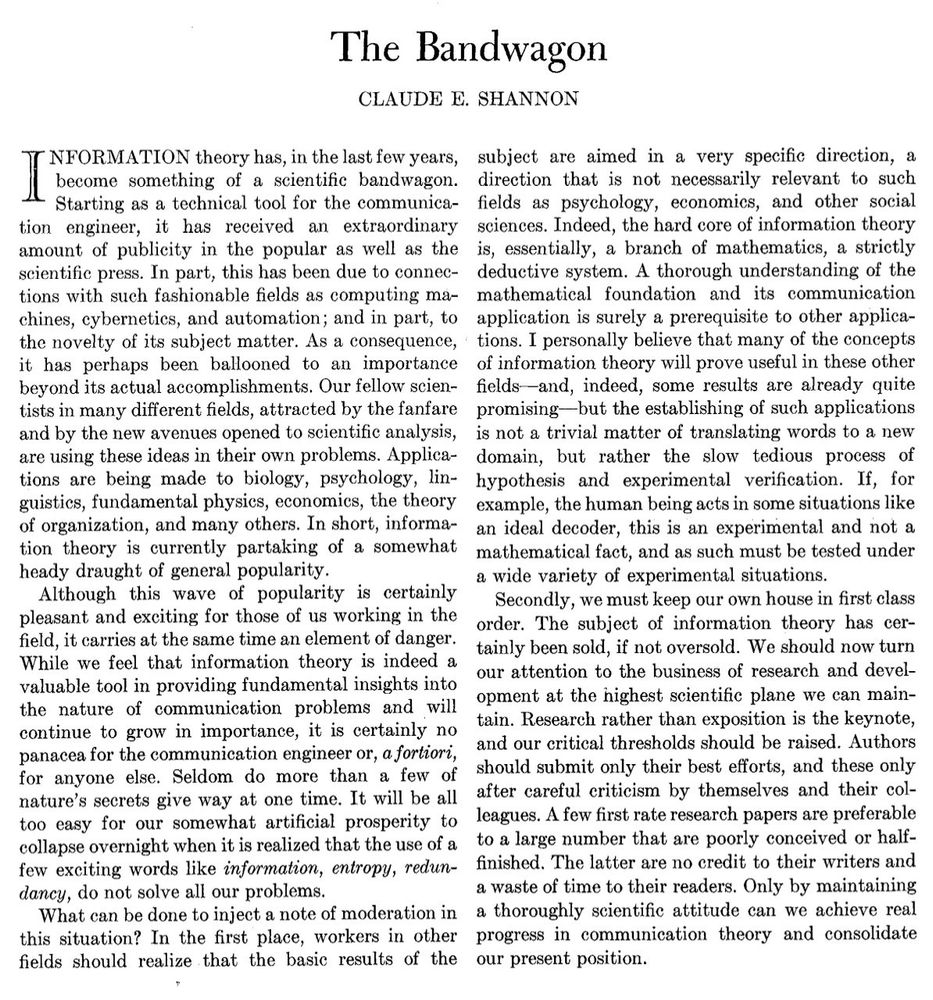
A warning:
"Seldom do more than a few of nature’s secrets give way at one time. It will be all too easy for our somewhat artificial prosperity to collapse overnight when it is realized that the use of a few exciting words like information, entropy, redundancy, do not solve all our problems."
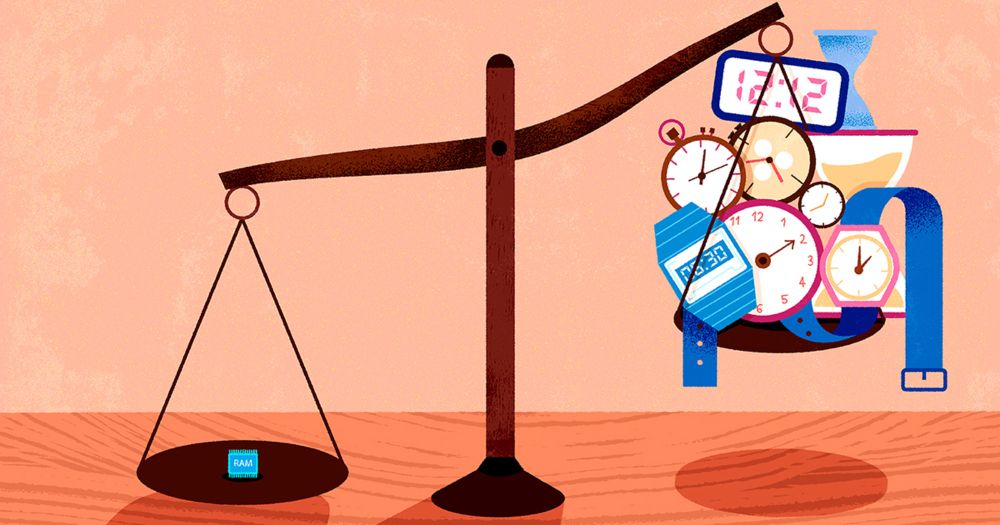
Time and memory determine the value of any algorithm. In February, the computer scientist Ryan Williams proved that a small amount of memory will always be as useful as a large amount of computing time.
@benbenbrubaker.bsky.social reports: www.quantamagazine.org/for-algorith...

New from our lab: your brain doesn’t just remember time - it bends it.
We show that the dopamine system responds to natural breakpoints in experience, and this relates to more stretched memories of time. Blinking also increases, signaling encoding of new memories.
www.biorxiv.org/content/10.1...